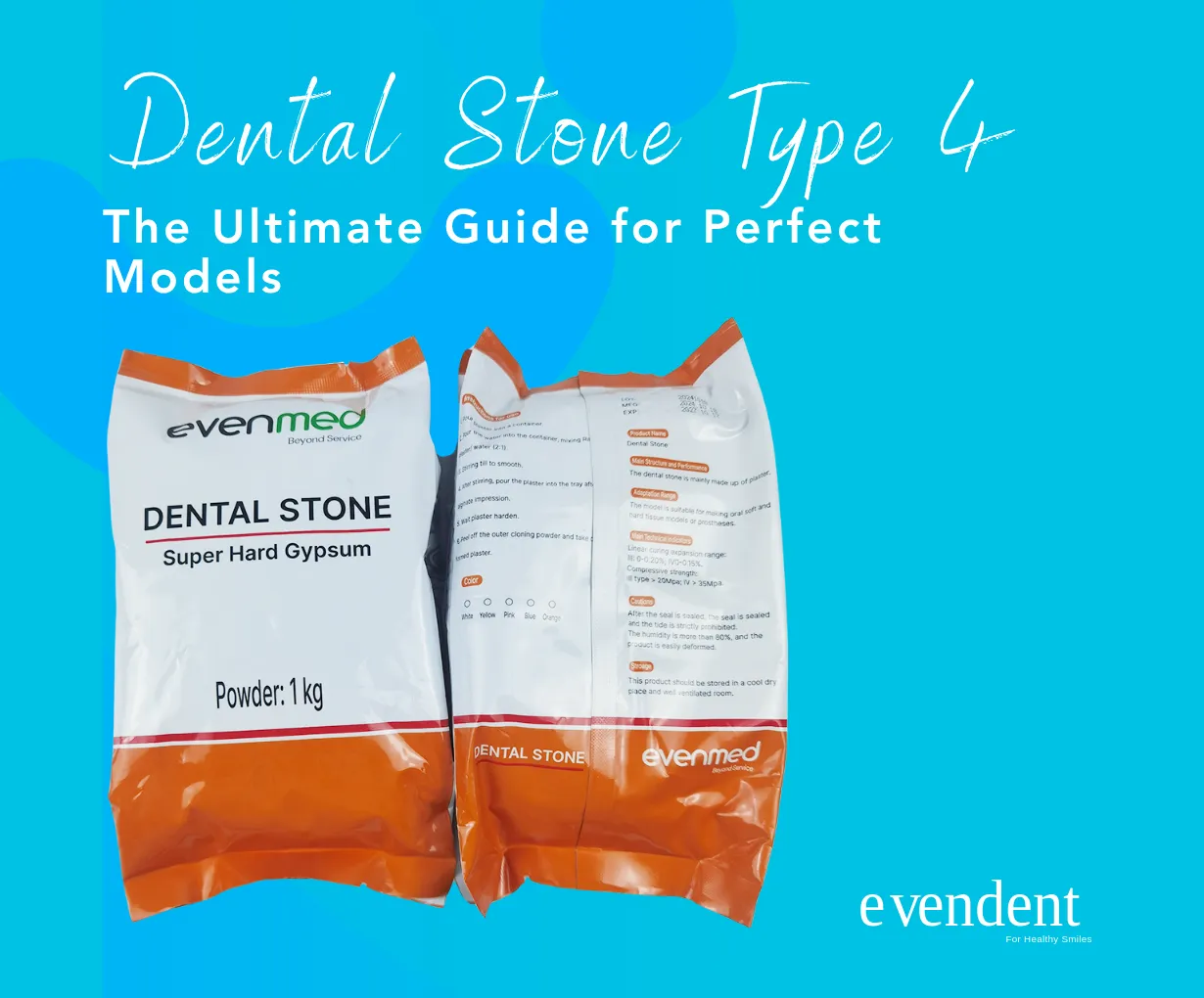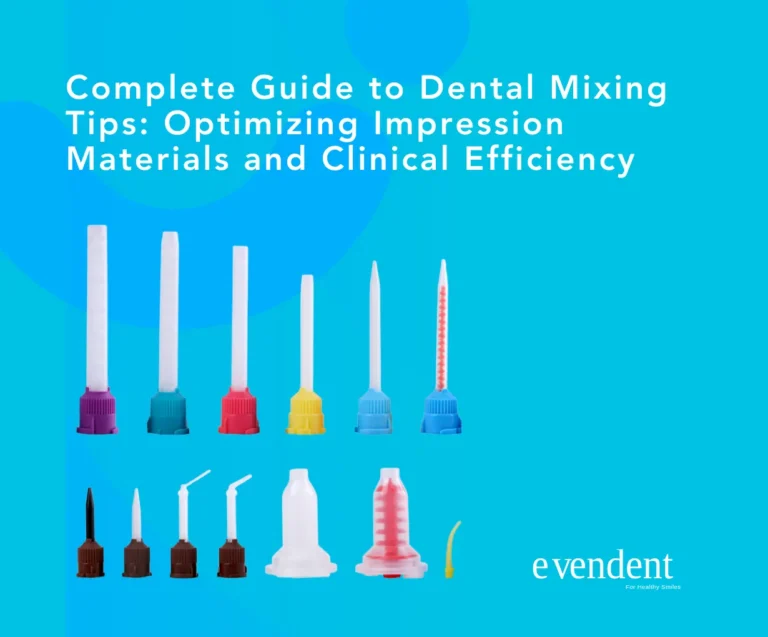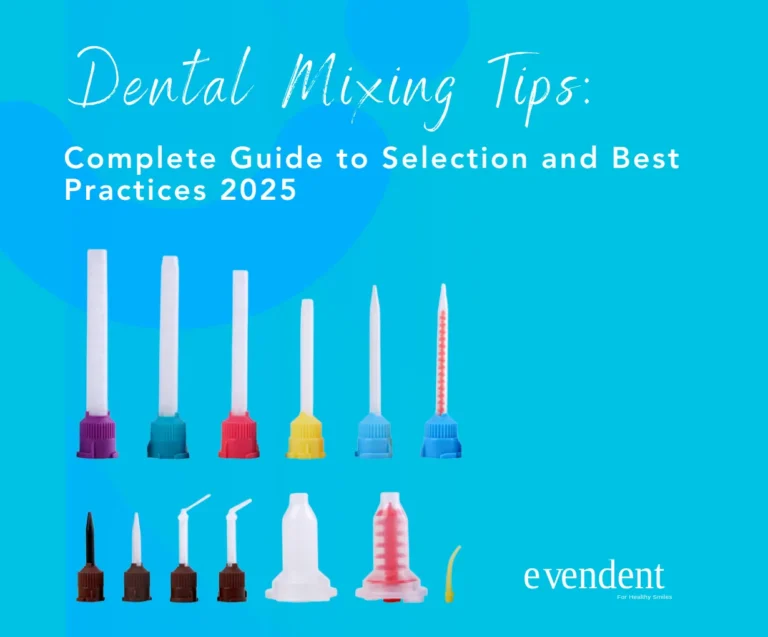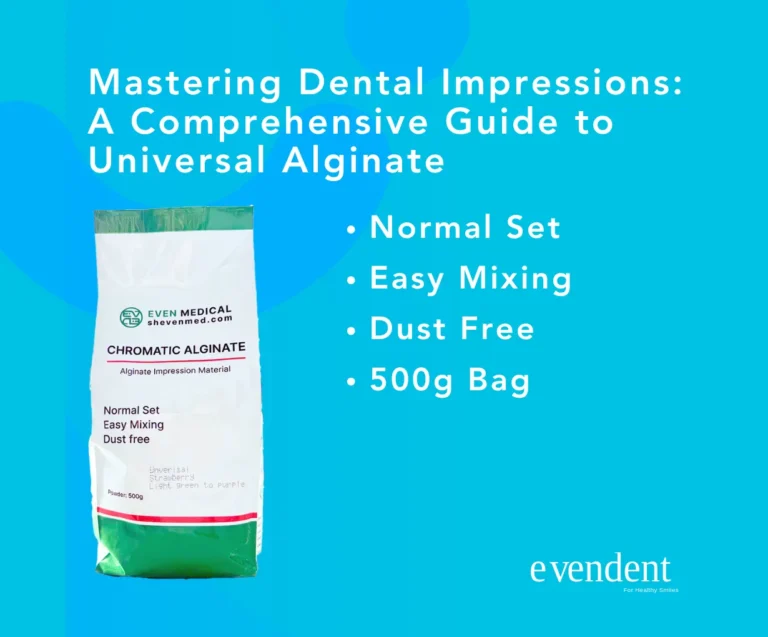In the world of restorative dentistry and prosthodontics, precision is not just a goal; it’s a necessity. Dental Stone Type IV, often referred to as die stone, is a cornerstone material for achieving this accuracy. Creating durable, stable, and minutely detailed models is fundamental for the successful fabrication of crowns, bridges, and implants. This guide provides a comprehensive overview of Dental Stone Type IV properties, its applications, and best practices to help dental professionals master its use for flawless restorative outcomes. Whether you are a seasoned lab technician or a clinician, understanding this essential dental model material is key to elevating the quality of your work.
What is Dental Stone Type IV (Die Stone)?
Dental Stone Type IV is a high-strength, low-expansion gypsum product classified under the ISO 6873 standard. It is specifically engineered for applications where exceptional hardness, surface detail reproduction, and dimensional stability are critical.
Unlike Type III dental stones, which are used for study models or opposing arch models, Type IV stone is manufactured from a higher quality gypsum hemihydrate. This results in a denser, less porous final product that can withstand the rigors of fabrication processes without abrading or chipping. Its primary application is the creation of “dies”—highly accurate individual tooth models upon which wax patterns for crowns, inlays, or onlays are created.
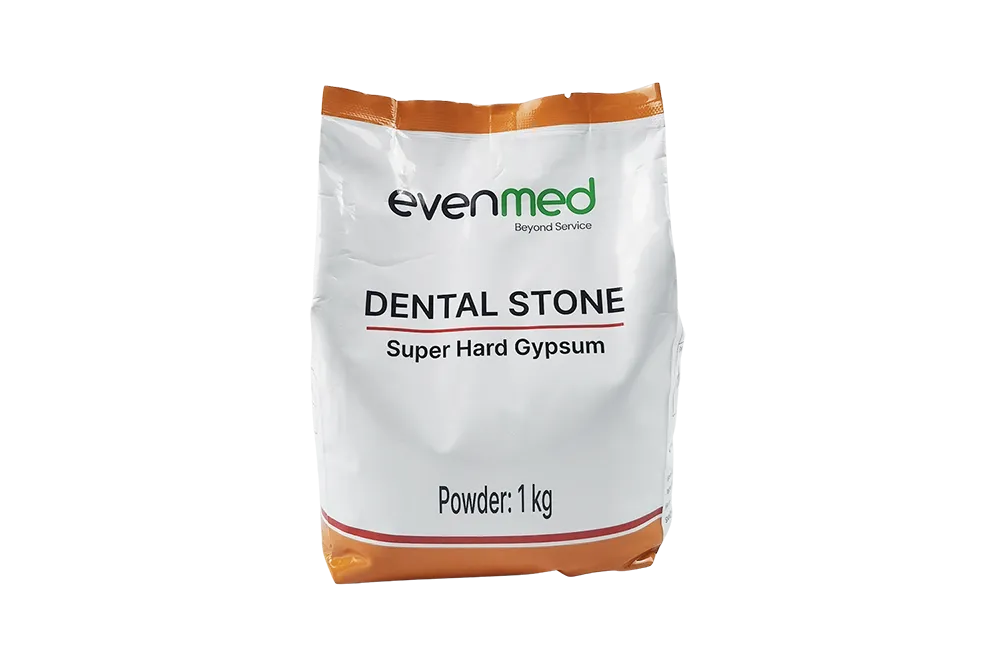
Key Characteristics of High-Strength Dental Stone
The performance of a high strength dental stone is defined by a set of critical physical properties. Understanding these characteristics allows technicians to select the right material and manipulate it correctly for superior results.
Exceptional Compressive Strength
Type IV stones boast high compressive strength, typically over 5,000 psi (35 MPa). This ensures the model or die will not fracture or wear down during the waxing, carving, and fitting of restorative appliances.
Minimal Setting Expansion
All gypsum products expand slightly upon setting. However, for a die, this expansion must be minimal (typically under 0.10%) to ensure the final restoration fits the patient’s tooth perfectly. The low expansion of Dental Stone Type IV is a key factor in its precision.
Excellent Surface Detail Reproduction
The fine particle size of Type IV stone allows it to flow into every minute detail of an impression, capturing crisp margins and subtle anatomical features. This leads to a restoration that requires fewer adjustments chairside.
Abrasion Resistance
The dense, hard surface of a set Type IV stone is highly resistant to abrasion. Technicians can work confidently on the die without worrying about scraping away critical details, ensuring the accuracy of the final prosthetic.
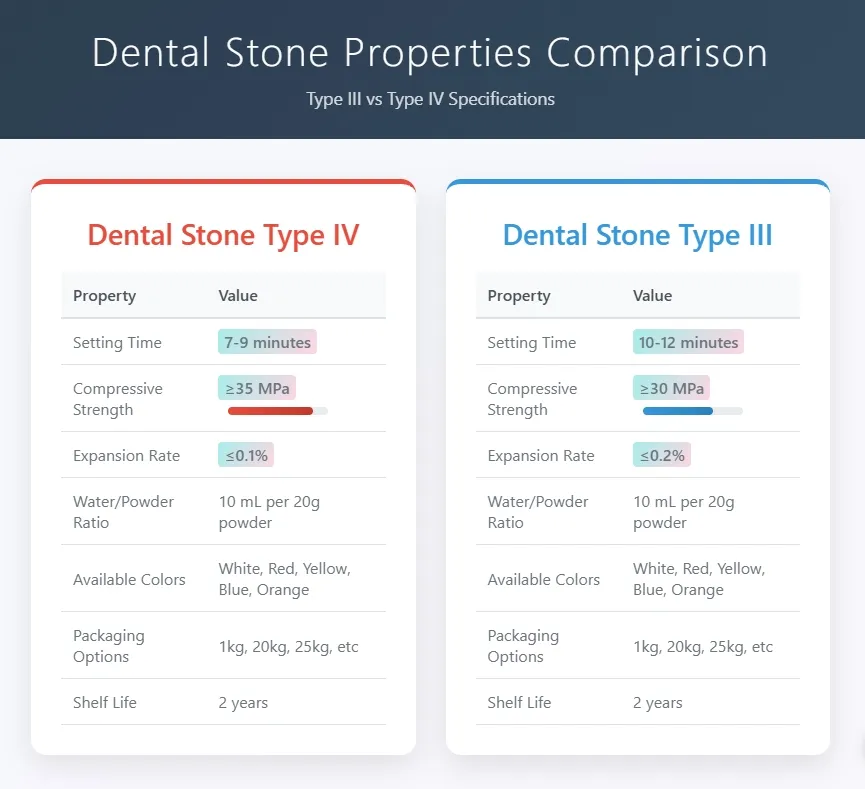
How to Mix Dental Stone Type IV: A Step-by-Step Guide
Proper mixing technique is crucial for unlocking the full potential of any die stone. Following a precise protocol ensures consistent results and avoids common pitfalls like air bubbles or a chalky surface.
Step 1: Gather Your Equipment
You will need a clean, flexible rubber bowl, a spatula, a graduated cylinder for water, a scale for the stone powder, and a vibrator.
Step 2: Precise Measurement
Always adhere to the manufacturer’s recommended water-to-powder ratio. For Evendent Dental Stone Type IV, this information is clearly printed on the packaging. Use a scale to weigh the powder and a graduated cylinder for the water. Inaccurate ratios can severely impact strength and expansion.
Step 3: The Mixing Process
Add the pre-measured powder to the water in the mixing bowl. Allow the powder to absorb the water for about 30 seconds before mixing. Mix with the spatula, pressing the mix against the side of the bowl to eliminate air bubbles. For the smoothest mix, a vacuum mixer is recommended.
Step 4: Pouring the Impression
Place the impression tray on a dental vibrator at a low setting. Pour the mixed stone in a small, continuous stream into one side of the impression, allowing it to flow and displace the air. This technique prevents trapping air bubbles at the bottom of the cusps.
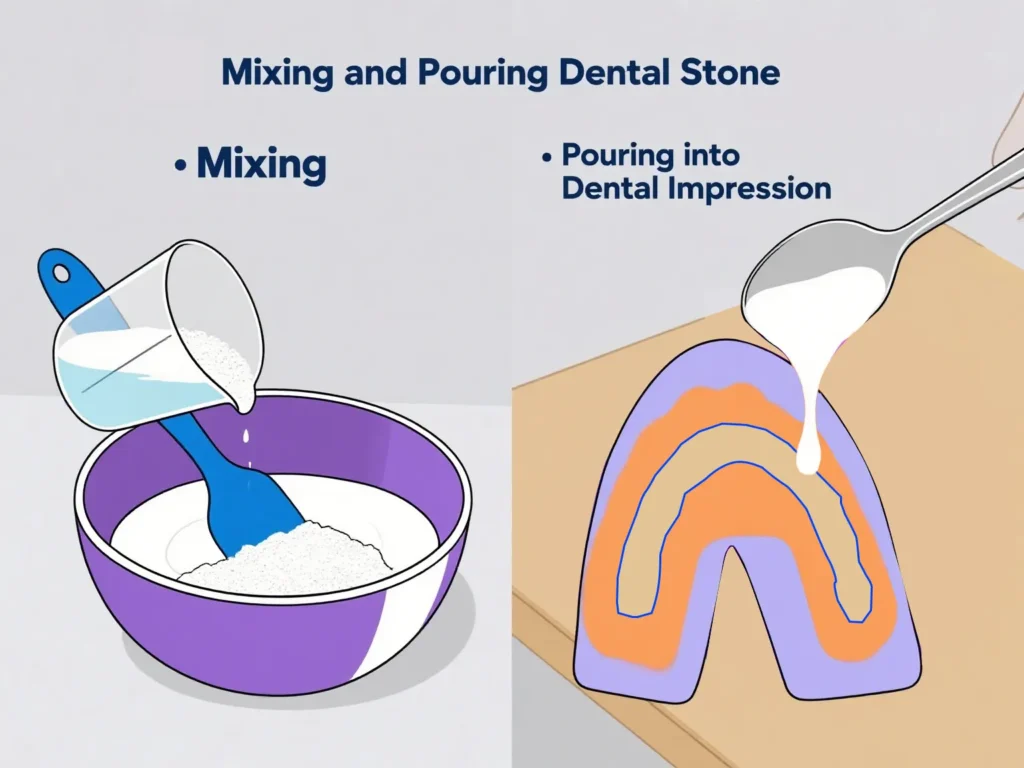
Common Applications in Modern Dentistry
The reliability and accuracy of Dental Stone Type IV make it indispensable for several critical applications in both traditional and digital dental workflows.
Master Dies for Crowns & Bridges
This is the primary use of Type IV stone. It creates the definitive working model from which fixed prosthodontics are fabricated. Its stability and strength are paramount for this process. For such high-stakes applications, using a premium product like Evendent Dental Stone Type IV is highly recommended.
Models for Implants and Partial Dentures
The dimensional accuracy of Type IV stone is essential for creating master casts for implant-supported restorations and removable partial dentures, ensuring a precise passive fit of the final prosthesis.
Scanning Models for CAD/CAM
In digital dentistry, a high-quality stone model is often fabricated and then scanned to create a digital representation. The smooth, non-reflective surface and color of specialized CAD/CAM stones are optimized for accurate scanning, bridging the gap between physical impressions and digital design.
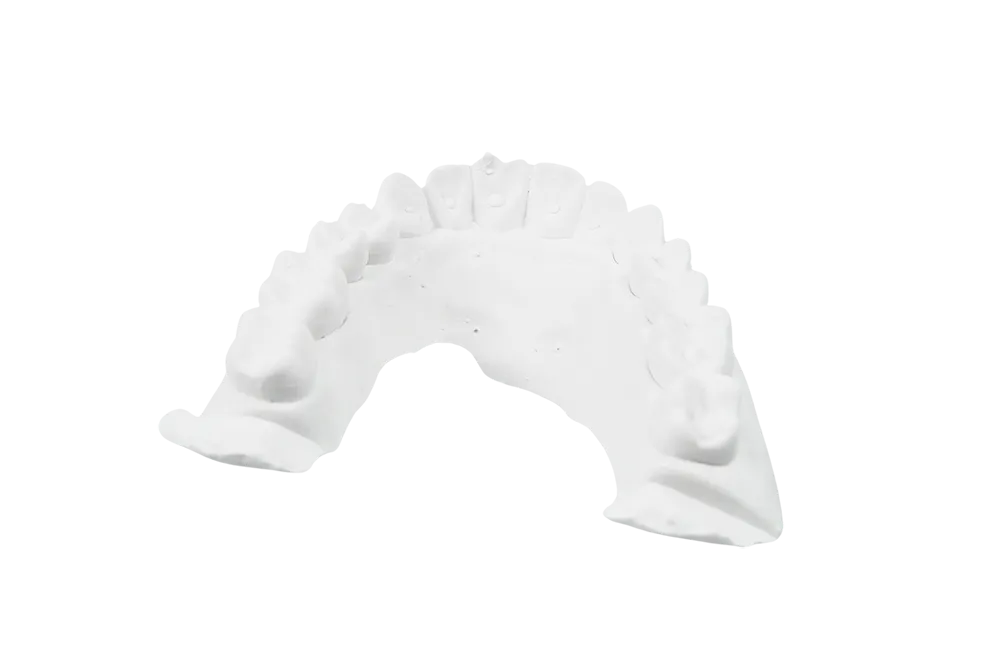
Summary and Recommendations
Dental Stone Type IV is more than just a powder; it is the foundation upon which precise and durable restorations are built. Its high strength, low expansion, and exceptional detail reproduction are non-negotiable features for any dental lab or clinic focused on quality.
By understanding its core properties and adhering to meticulous mixing and pouring protocols, you can ensure your models are consistently accurate. This reduces the need for adjustments, saves valuable chair time, and ultimately leads to better patient outcomes. When selecting a material, always opt for a reputable brand that guarantees compliance with ISO 6873 standards.
Ready to achieve unparalleled precision in your restorative work? Explore the superior quality of Evendent Dental Stone Type IV for your next case. Visit our Product Knowledge section for more in-depth guides on dental materials.
Looking for Professional Dental Material Solutions?
🔬 Technical Consultation: Get expert guidance and product selection advice
📦 Sample Request: Receive free product samples for testing
💰 Quotation Service: Get the best pricing for bulk purchases
Contact Information
📞 Phone/WhatsApp: +86 180 1638 1172
🌐 Website: evendent.com
📧 Email: shevendent@gmail.com
